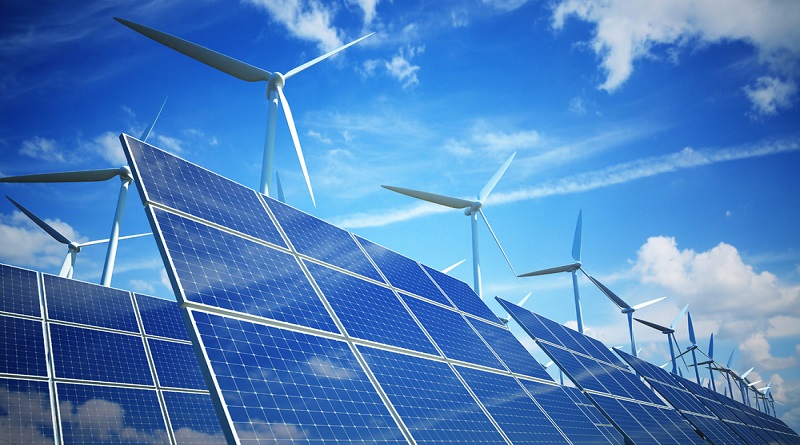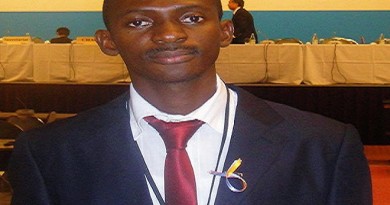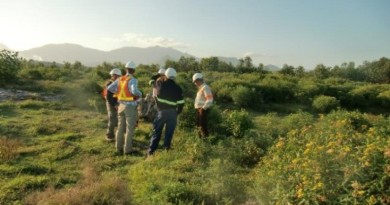East African CSOs urge leaders to embrace renewable energy, abandon fossil fuel exploration
The 10th East African Petroleum Conference and Exhibition 2023, which came to a close in Kampala on Thursday 11 May 2023, has drawn criticism from Civil Society Organizations (CSOs) in the region. In a May 10, 2023 letter sent to the Heads of State of East African nations, 41 CSOs voiced concern over East African leaders’ discussions to exploit oil in the region, which could exacerbate climate change.
Youth from East African countries, including Uganda, Kenya, Tanzania and the Democratic Republic of Congo (DRC), also took to Twitter on May 11, 2023, to voice their concerns over their governments’ and oil companies’ plans to enhance investments in oil and gas in East Africa.
The regional petroleum conference themed East Africa as a hub for Investment in Exploration and Exploitation of Petroleum Resources for Sustainable Energy and Socioeconomic Development brought together top East African government representatives with the aim of developing a common energy policy (mainly anchored in oil) to be backed with a protocol that will define the regional framework to support the development of the petroleum sector.
“It’s concerning that regional leaders should meet to discuss how to build new oil projects when the world is transitioning from fossil fuels to renewable energy. In its 2021 World Energy Outlook report, the International Energy Agency (IEA) indicated that oil demand is expected to level off in the mid-2030s and decline in 2050,” Mr Dickens Kamugisha, the CEO of Africa Institute for Energy Governance (AFIEGO) from Uganda, says.
He adds, “Yet East African countries are borrowing huge amounts of money to invest in oil and gas. How will they recoup the monies that are invested? East Africans are poor and should not be straddled with assets that could become stranded. Governments should avoid investing in coal, oil and gas.”
“Africa has significant renewable energy potential, which if developed, can position the continent to lead the global green energy transition. Instead of seemingly doubling down on fossil fuels, we urge East African leaders to prioritize the adoption of safe and sustainable renewable energy. We are concerned about talks between Uganda and the Democratic Republic of Congo regarding the exploration and transportation of oil from DRC via the East African Crude Oil Pipeline, and reiterate calls for the governments of DRC, Uganda and Tanzania to abandon the oil and gas auction and the EACOP project respectively, which faces resistance in the region due to its impacts on local communities, sensitive ecosystems, the environment and on climate.” said Charity Migwi, Regional campaigner, 350Africa.org
“The Intergovernmental Panel on Climate Change (IPCC) has warned that at the current rate, global warming would reach 1.5 degrees Celsius by 2040, which could cause severe environmental and economic damage. Suppose the East Africa Community (EAC) member states proceed in this direction, they will undermine the scientists and put undue pressure on frontline communities in the region suffering climate change consequences.” said Ms Hilda Flavia Nakabuye, a Fridays for Future Uganda co-founder.
“Numerous studies by reputable energy think tanks show that renewable energy is becoming increasingly cost-competitive with fossil fuels. Renewable energy is the fastest-growing energy source worldwide and is projected to make up 90% of new power capacity added globally over the next decade. Fossil fuel infrastructure will quickly become a stranded asset as the world moves towards a low-carbon future. It’s, therefore, difficult to imagine why the regional bloc would support building new oil pipelines like the East African Crude Oil Pipeline (EACOP).” Mr. Baraka Lenga of GreenFaith International said
“East Africa is one of the regions that is worst hit by climate change resulting in prolonged droughts and flash floods. The Congolese Red Cross says that at least 411 died in the Democratic Republic of Congo following the flooding. It was, therefore, disturbing to see the DRC speak of bilateral engagement with Uganda to develop hydrocarbons and access to the EACOP to transport crude oil, which will be extracted from the Albertine Graben in the DRC.” Jimmy Ufoy from the Ituri region in DRC said.
The CSOs call on East Africans to collectively hold their leaders accountable for their actions and demand that they put people and nature’s well-being above profits. Oil exploration in East Africa threatens the region’s biodiversity, ecosystems, and people’s livelihoods, as evident from the controversial EACOP.




